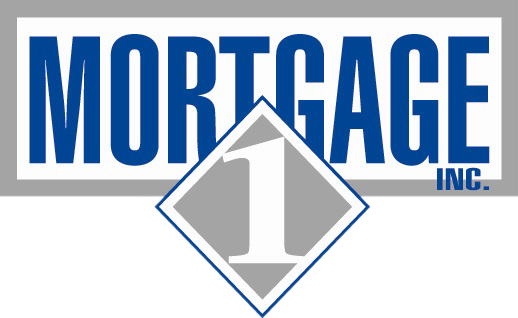
FICO Score: What It Is & Why It Matters When You Buy a House
October 7, 2020
How to Get Top Dollar When Selling Your Home
October 22, 2020Not managing your money properly can have scary consequences.
The five bad habits described in this article may be holding you back from your goals, but it doesn’t have to be that way. See if you’re guilty of these terrifying tendencies, and what you can do to remedy them.
| Ready to Apply for a Mortgage? Call us at 1-866-532-0550 or locate a Mortgage 1 loan officer near you and get the process started. |

Reviewing Your Credit Less Than Once Per Year
The Federal Trade Commission conducted a study that found one in five people have an error on at least one of their credit reports. It’s essential to get your free yearly report from AnnualCreditReport.com and review it for any mistakes that could damage your credit rating. A lower score can lead to higher costs for credit or even denial of a loan down the road.

Maintaining a High Balance on Credit Cards
Carrying a credit card balance is not a good thing. Don’t let your balance exceed 30% of your credit card’s limit; any higher and it will adversely affect your score (plus it costs you more in interest). The American Bankers Association suggests the following for people haunted by credit card debt: Pay as much as you can, as soon as you can, and always pay by the due date. In a way, credit cards are just high-interest loans — and that means there’s a lot of money going to your creditor that could have been in your pocket. If you’re only paying the minimum each month on your balances, you’re paying a lot more than you intended to.
For example, if you have a credit card balance of $5,000 at an interest rate of 15%:
- If you make the minimum payment (3% of balance), it will take 44 months to pay off and you will pay $1,509 in interest.
- If you double the minimum payment to 6%, you will pay off the balance in 19 months and pay $642 in interest.
- If you match the interest rate (15%), you will pay off the balance in eight months and pay $253 in interest.

“Credit cards are just high-interest loans — and that means there’s a lot of money going to your creditor that could have been in your pocket.“
– Janet Cordero, Mortgage 1 Senior Loan Officer

Living Paycheck to Paycheck
If your entire paycheck disappears by the end of the month, you’re not alone. Equifax reports that nearly 80% of Americans are spending their entire income every month. This is a scary place to be! You’ve got no cushion: If your car needs repairs or your kid breaks an arm, how do you cover the extra expense? This is why building an emergency fund is so important. Experts recommend saving at least six months of living expenses, but if that goal seems too big, start with a goal of one month and work your way up.
Tips for Growing Your Savings
- Track all of your spending for an entire month. You’ll see some patterns emerging and soon you’ll discover where you can shift your spending or cut back a little.
- Look for places to save. Check your insurance, wireless and other monthly services to see if you can negotiate a better deal or switch providers. If that’s not enough, cut back on ordering takeout and limit your online shopping. Conscious choices like these add up and you can put that extra money into savings.
- Automate your savings. If you have to think about saving and how much to put aside each month, you’re less likely to do it. Allocating a set amount to go into savings automatically ensure it doesn’t get spent on other things.

Living Beyond Your Means
If you’re spending more than you make, you’re likely racking up debt to maintain a particular lifestyle. But we’ve already addressed the downsides of credit card debt. If you’ve got brand-name taste but a no-frills budget, it’s time to shift your paradigm. Limit your spending to what you can afford, and focus on efforts that help build your wealth (like owning your home or investing) so that you will be able to afford those luxuries a little later.

Skimping on Home Maintenance
Maintaining your home means nipping problems in the bud before they get to be monstrous. A dripping tap is merely annoying; a burst pipe can be a tragedy. Not only is there water everywhere, but now you have to worry about fixing the pipe, floor and subfloor damage, and possibly toxic mold. But there are other reasons to maintain your home as well. Equity in your home can be a significant portion of your overall net worth. And if you decide to sell your home, you’ll make a lot more off it if you don’t have to plow a ton of moolah into repairs before you even put it on the market.

“Equity in your home can be a significant portion of your overall net worth.“
– Janet Cordero, Mortgage 1 Senior Loan Officer
Build a Solid Financial Foundation
Home ownership is part of a solid financial foundation. If you have questions, call us at 1-866-532-0550 or locate a Mortgage 1 loan officer near you to get the mortgage process started using our digital mortgage app. It’s fast and easy!





